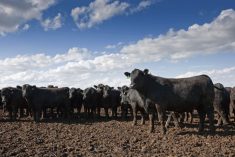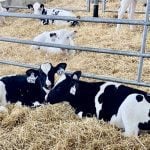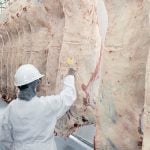A study on processing flax as a feed supplement for dairy cows and development of a greenhouse gas calculator for the dairy sector are among four projects in Atlantic Canada sharing $1.1 million in new federal funding.
The funding, announced Friday in Fredericton by New Brunswick MP Mike Allen, will flow through the Advancing Canadian Agriculture and Agri-Food (ACAAF) program.
Of the $1.1 million, the Atlantic Grains Council will get $525,000 for a project to work out the best way to process flax as a supplement for dairy feed to maximize its health benefits, including omega-3 fatty acids. Results from that work, to be done at the Atlantic Dairy and Forage Institute in Fredericton, are expected to benefit dairy farmers across Canada, the government said.
Read Also

B.C. ostriches culled, CFIA confirms
Ostriches on an embattled Edgewood, B.C. farm have been culled after a prolonged legal battle, the Canadian Food Inspection Agency has confirmed.
The remaining $572,000 will be divided between three other projects at the Atlantic Dairy and Forage Institute, including $450,975 to develop a standardized greenhouse gas calculator, which is expected to be incorporated into PC-based software for Canadian dairy farmers by April 2009.
The software would allow farmers to work out their greenhouse gas emissions, help them compare with other farms and help them modify their own farm practices to cut down emissions of carbon dioxide, methane and nitrous oxide — and possibly to earn carbon offset credits.
The two other projects receiving funding include:
- $69,250 for the institute to study its own needs for facility and service improvements “to meet the standards of a modern dairy research facility,” and to hire an engineering consulting firm to develop plans for a dairy research barn and lab at the institute’s site in Fredericton; and
- another $51,780 for the 11-year-old institute to raise awareness of its research and testing facilities, as it seeks to boost its visibility in the North American dairy nutrition research community.
The institute’s services include evaluating feeds and their effects on milk production, herd health and reproduction; developing soil, crop and manure management practices for individual dairy farms and companies; evaluation of new feed products; and on-site lab analysis.













